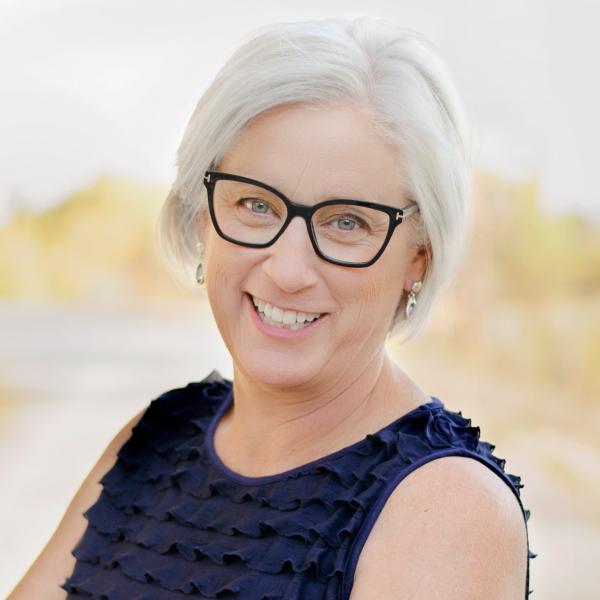CEO Michele Lueck and Rep. Amy Stephens: A Conversation
Editor’s Note: Rep. Amy Stephens, a Republican state lawmaker from Monument who is being termed out of the state legislature after eight years, has joined the Colorado Health Institute as an adviser. Recently, she and Michele Lueck, CEO and president of the Colorado Health Institute, discussed a wide range of health and health policy topics via an email exchange.
Michele E. Lueck: Amy, welcome to the Colorado Health Institute. I, for one, am glad you’re here. As you termed out of the state legislature, I know you had lots of opportunities. Why did you choose us?
Amy Stephens: I have long appreciated the even-handed research CHI has provided to me as I’ve served in the legislature. This is an opportunity to explore state and national health care ideas. I think Americans are uncertain about the current state of our health care and are looking for answers.
MEL: Health is often treated as a “left of center” or liberal concept. Why do you think that is? When is health of universal concern? When is it a conservative concern?
AS: That’s an interesting question and one that I discuss frequently with my colleagues. Health care should be a universal concern, but philosophically and ideologically is where the breakdown happens. We have deep ideological splits when it comes to policy and what may or may not “work” for Colorado. Add health care costs, access and value and the divide gets even deeper! Being a solutions-oriented person, my interests lie in taking a hard look at ideas across the United States and in Colorado and having the courage to evaluate what is and isn’t working no matter which side of the aisle the idea came from. Business deserves to know and the people of Colorado – the taxpayers – deserve to know.
MEL: What interesting ideas do you see surfacing on the right over the next couple of years?
AS: Republicans in Congress such as Tom Coburn and Paul Ryan have health care plans on the table. I think the real action should still be in the states. Governors have a much better opportunity to make changes in their states and Republican governors are stepping up to do so. Mike Pence in Indiana has come up with a plan for Medicaid expansion that has received both praise and criticism. Bobby Jindal was featured in April in BusinessWeek, taking a look at a number of ideas he is proposing for his state, such as ending the exemption from taxes for health-care benefits provided by employers and moving toward tax deductions. Arkansas and Pennsylvania are looking at public/private solutions to save money on Medicaid. And a number of center-right think tanks are taking a hard look at Medicaid expansion and how to stop it from crowding out education, public safety and other important functions of the state. I think we have much to look at!
MEL: As a non-partisan institute, we strive to support ideas from both sides of the aisle. We’re not interested so much in political ideology as we are in the evidence behind the idea. We ask, “Could this idea work? How would it work and for whom?” When have you benefitted from this approach from CHI, and how could we make our research more useful to legislators?
AS: Research organizations almost have to have a crystal ball when it comes to anticipating what the legislature will have to wrestle with and what research will be most useful. You are also in the position to have to wave a red flag when we are facing a dire issue as a state. You did just that when you presented your research report on the numbers of dwindling primary care physicians in our state. I took that seriously. I told our health committee when I presented a bill last session that we are already at a five-alarm fire with the dwindling numbers of physicians, and this will demand resources the state is not prepared to spend. Helping legislators understand what research numbers mean is also very helpful and how this translates to their district and its resources, the state budget that they will vote on, and the cost to the people of Colorado if we don't address the issue.
MEL: What’s been the best part of your first couple of weeks at CHI?
AS: The best part is slowly getting to know the people at CHI. I am impressed at the various backgrounds of the CHI team and the pace at which they work. There is one team member who handles all IT at CHI and somehow had time to run the Tough Mudder competition! Now THAT is a serious competitor!
MEL: We are preparing for our seventh bi-annual Hot Issues in Health Care conference. How are you shaping the agenda to help CHI make this a conference that really reflects conservative and liberal sides of the health policy coin?
AS: I’ve been fortunate to have a national network of colleagues who work at think tanks, for Congress, for governors, etc., who want health care ideas that work for everyone. I think we should dig deep and discuss them pro and con and see if we can glean something that might work for Colorado. As a legislator who would attend health conferences, I rarely would get to hear the pros and cons of any issue. I always felt we were spoon-fed an agenda, which I resented. We are fortunate as a state to have some great health care minds. But like any state, we can get tunnel vision. If you are going to lead, you have to have the courage to look at the best information you have to make a decision. I want that for legislators attending the CHI conference.
MEL: This is fun. Perhaps we can do this more often. A reality show? The Real Policy Analysts of Colorado? In any case, thanks for your time!
AS: Thanks, Michele, this has been fun.

